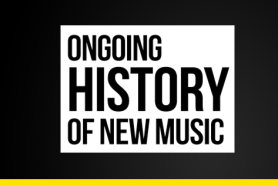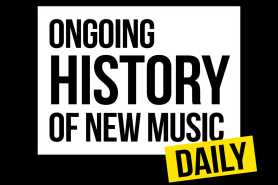Prime Minister Justin Trudeau shared an “overview” of the federal government’s plan to strengthen border security with Canada’s premiers and discussed potential responses to tariffs threatened by U.S. president-elect Donald Trump during a meeting Wednesday, federal officials said.
Public Safety Minister Dominic LeBlanc told reporters in Ottawa that the border plan was still being finalized, and would incorporate suggestions from the premiers during the meeting, the second one held since Trump’s threat to impose 25 per cent tariffs on Canadian imports. He said details would be shared with the incoming Trump administration and Canadians “in the coming days.”
“We shared the details of the border plan with premiers, and received positive feedback,” he said following the meeting.
LeBlanc said several premiers offered their own provincial policing resources, including personnel and equipment, to work with RCMP and the Canada Border Services Agency (CBSA) enforce the Canada-U.S. border.
“The idea of jointly working together was very encouraging for us,” he said.
Plans to increase spending for border enforcement “will roll out when it rolls out,” LeBlanc added, and didn’t rule out potential legislation to strengthen those resources.
Ontario Premier Doug Ford said after the meeting that the federal government has agreed to his “specific asks” to add police resources to the border and have Health Canada share data on where fentanyl found in Canada is originating from.
“They have a plan, but it’s one thing to have a plan. Now we have to implement it,” he told reporters at Queen’s Park.
Trump has said both Canada and Mexico need to address illegal migration and fentanyl trafficking into the U.S. or face tariffs on all American imports.
Although Canada only accounts for a small fraction of illegal entries of people and drugs into America compared to Mexico, Trump’s threat has exposed gaps in Canada’s border security that premiers and police unions have called on Ottawa to address.
Deputy Prime Minister Chrystia Freeland, who also co-chairs the revived cabinet committee on U.S. relations with LeBlanc, told reporters several premiers spoke “strongly in favour of a robust Canadian response to unjustified tariffs” if Trump follows through on his threat in January.
Trudeau said in Halifax on Monday his government is still mulling over “the right ways” to respond to U.S. tariffs if they’re imposed, but he pointed to Canada’s “very carefully targeted” approach when Trump hit Canada with steel and aluminum tariffs in 2018 as an effective way to fight back.
Freeland said critical minerals and metals that Canada produces were identified as examples of products the U.S. relies on that could be included in a potential response.
“We know that this is a moment when Canada needs to be strong, smart and united, and we know that when Canada is strong, smart and united, when we play as a team, we can be effective and we will win,” she said.
“We recognize … that this is a serious moment for Canada, and we are resolute and determined to meet that moment.”
Ford said Freeland and the provinces will put together lists of products that should be included in a response.
He also said Ontario would “go to the extent of cutting off their energy” going to states like Michigan and New York “depending on how far this goes.”
“I don’t want this to happen, but my number one job is to protect Ontario, Ontarians and Canadians as a whole, since we’re the largest province,” he said.
“Folks, this is coming. It’s not if, it’s coming, and it’s coming Jan. 20 or the 21st. We need to be prepared.”
Freeland said she wasn’t viewing the situation as inevitable, however, saying she wouldn’t entertain hypotheticals.
“Canada needs to hope for the best and prepare for the worst,” she said. “Our emphasis right now is on talking to our American friends and neighbours.”
Freeland said Trudeau thanked the premiers for their outreach to U.S. officials and American media as part of the “Team Canada” approach.
Alberta Premier Danielle Smith has been in Las Vegas this week meeting with U.S. governors at the Western Governors Association’s annual winter meeting, making the case to keep tariffs off Canadian energy. She and Ford have also appeared on Fox News and other U.S. media networks to highlight the impact Trump’s tariffs could have on American consumers.
The first ministers’ meeting comes just a day after Trump launched more jibes at Trudeau on social media by calling him governor of “the great state of Canada” — a nod to his recent reported joke that he might have Canada join the U.S. as its 51st state.
Lawmakers are days away from starting an extended winter holiday break, but when MPs return to Parliament in January, it will be after the presidential inauguration.
Trudeau told reporters he was “looking forward” to the meeting as he headed into question period in Ottawa earlier Wednesday.
“There’s lots of work to do altogether, but we can see that one of the great strengths of Canada is different perspectives focused on standing up for Canadians. That’s what this is all about,” he said.
NDP Leader Jagmeet Singh said some conservative premiers have been giving off “very mixed messages,” and now is the time to send signals of unity and a show of strength.
“What we need to do is acknowledge Trump is a bully. Bullies look for weakness. That’s why he’s trolling us,” Singh said, demanding a clear plan of action.
On Sunday, Conservative Leader Pierre Poilievre said “every single Conservative would tell every single American” that tariffs on Canada would be a bad idea. But he has also repeatedly criticized Trudeau as a weak leader who will not protect Canada from Trump’s threats.
—with files from the Canadian Press
© 2024 Global News, a division of Corus Entertainment Inc.



 Ad Choices
Ad Choices